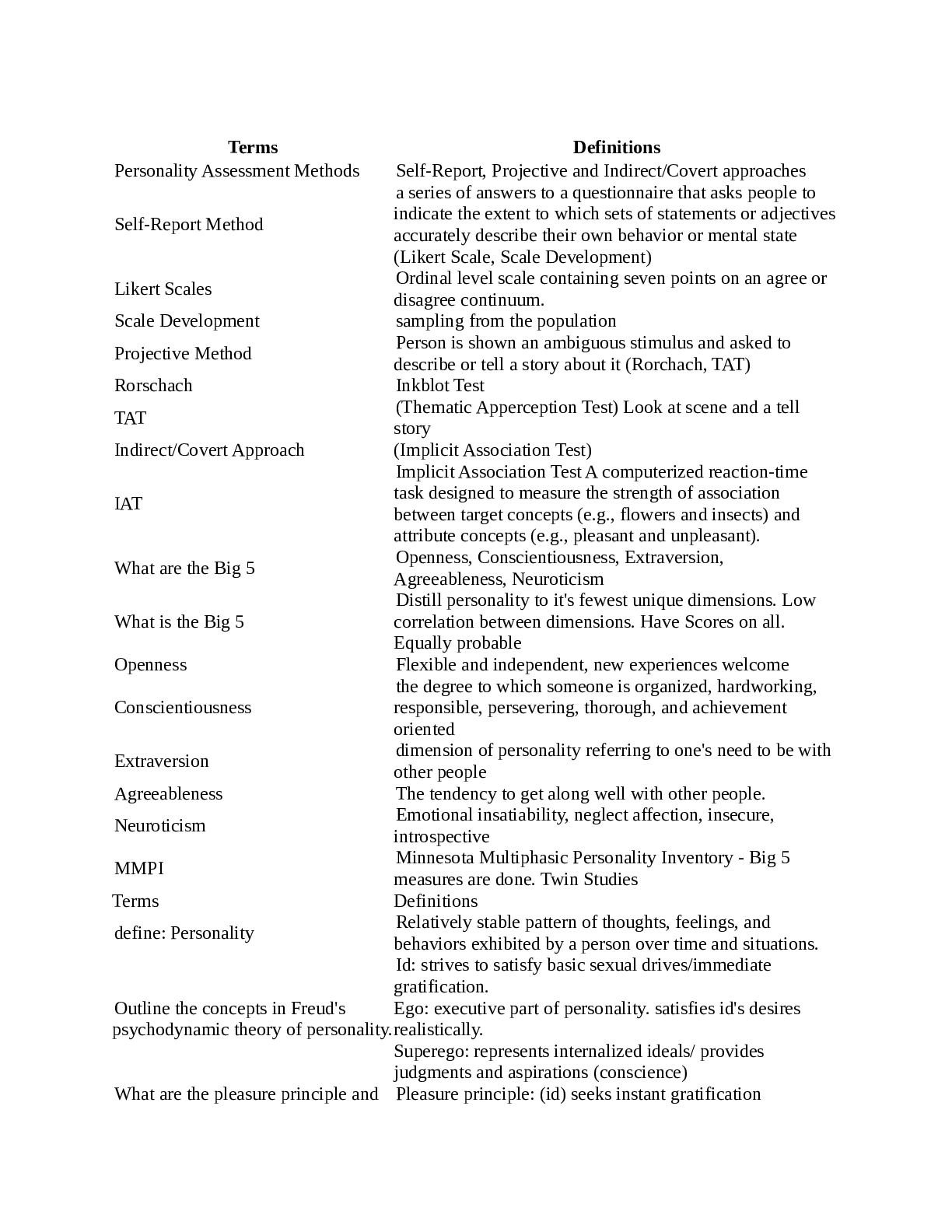Personality Assessment | Introduction to Psychology
Course
Subject
Chemistry
Category
Questions and Answers
Pages
14
Uploaded By
ATIPROS
Preview 4 out of 14 Pages


Download all 14 pages for $ 8.00
Reviews (0)
$8.00
